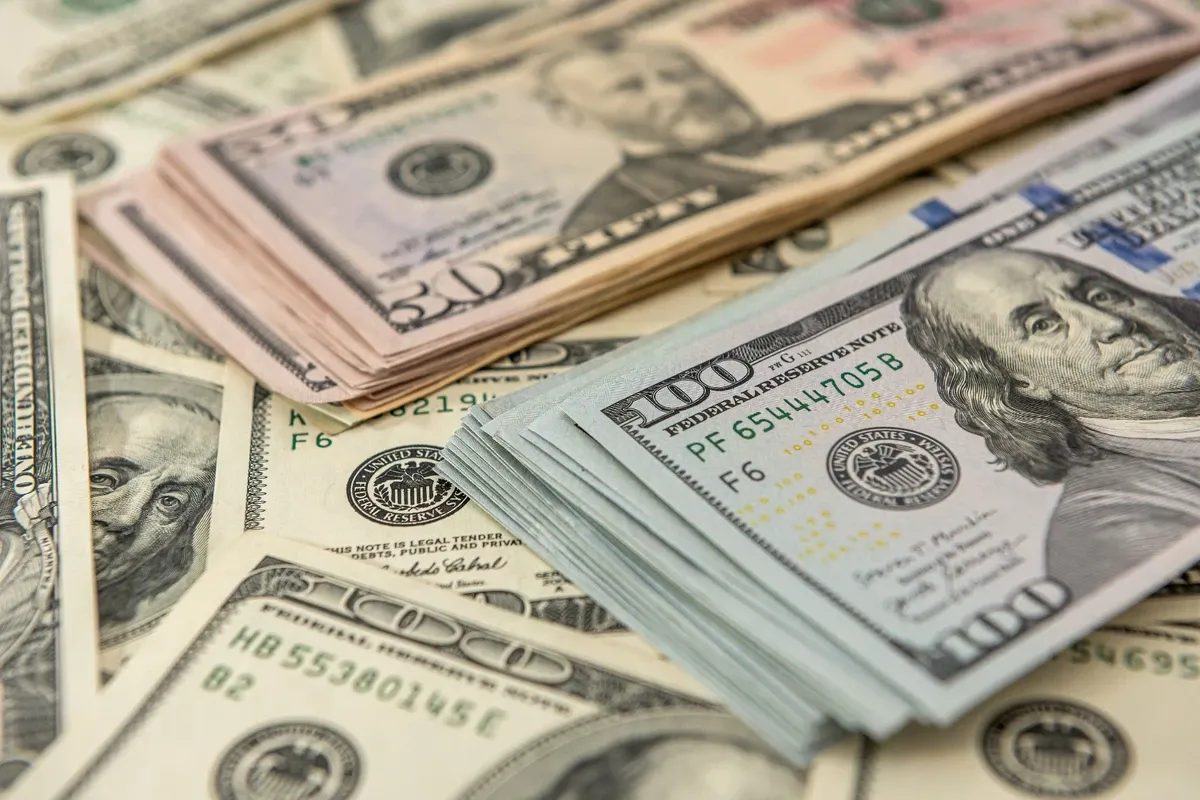Pakistan sees $244 million profit repatriation in July, power sector dominates outflows
Coal-based energy projects lead foreign returns as pharmaceuticals, mining also post strong gains
Business Desk
The Business Desk tracks economic trends, market movements, and business developments, offering analysis of both local and global financial news.

A stack of US dollar notes
Shutterstock
Foreign investors repatriated $244 million from Pakistan in July 2025, a sharp increase from $139.1 million in the same month last year, according to provisional figures released by the State Bank of Pakistan.
The surge was driven almost entirely by foreign direct investment, with foreign portfolio investment contributing just $0.2 million.
According to the central bank, a number of factors helped improve Pakistan's balance of payments. Favorable global trends and measures to boost IT exports and remittances through official channels led to steady export growth and robust worker remittances. These not only offset the increase in imports, but also helped to finance the higher repatriation of profits and dividends.
The power sector dominated repatriation activity, accounting for $71.3 million, led by coal-based energy projects, which alone returned $60.6 million. Hydel and thermal power followed with $8.2 million and $2.5 million, respectively. Pharmaceuticals and over-the-counter products came in second with $22 million, reflecting growing investor confidence in healthcare-related industries.
Mining and quarrying posted $19.7 million in repatriated profits, while petroleum refining returned $15.4 million. The food sector contributed $14.7 million, and financial businesses repatriated $13.3 million. Tobacco and cigarettes added $12.3 million, while electronics, including consumer and industrial segments, brought in $11.1 million.
Transport equipment, primarily automobiles, saw $8 million in repatriation, with cars alone accounting for $7.9 million. The communications sector matched that figure, driven entirely by telecommunications. Other notable contributions came from storage facilities at $17.1 million and transport services at $16.8 million.
Several sectors, including textiles, sugar, cement, IT services, and basic metals, reported no repatriation activity. Analysts say the uneven distribution highlights sector-specific challenges, particularly in manufacturing and technology, despite the overall rebound in investor sentiment.
According to the most recent survey by the Overseas Investors Chamber of Commerce and Industry (OICCI), business confidence in the country's economy has shown a significant improvement. For the first time in three years, the business community's outlook has turned positive.
In fiscal year 2024, the government limited profit repatriation to help manage external debts and preserve foreign exchange reserves. These restrictions were lifted in fiscal year 2025, allowing foreign investors to fully repatriate all profits and dividends.










Comments
See what people are discussing